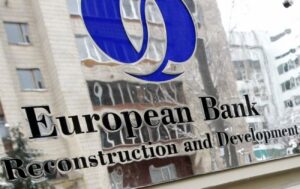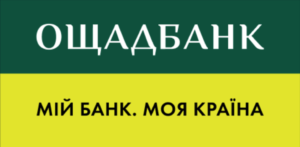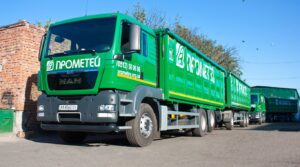
State-owned Sense Bank (Kyiv) has entered into a multicurrency credit line agreement with OKKO Group equivalent to EUR 20 million, the bank’s press service reports.
According to the terms of the agreement, the funds can be used for both investment purposes and working capital replenishment, and the term of the agreement is 5 years.
Commenting on the event, Olena Gorobets, Sense Bank’s Director of Corporate Business for Industrial Enterprises, noted that providing financial instruments for critical enterprises is one of the priorities of the financial institution.
“Even in today’s challenging environment, our company finds ways to develop and invest in the Ukrainian economy, provide customers with quality fuel and quality service. An important key to this is financial mobility, the ability to freely operate working capital at any time. The new credit line gives us such opportunities,” comments OKKO Vice President for Finance Nazar Kupibida.
As reported, on February 10, Sense Bank launched the grant program “Support for Energy Resilience of Micro and Small Enterprises in Ukraine”, which is being implemented by the Norwegian Agency for Development Cooperation and the German government and is being implemented by the German federal company Deutsche Gesellschaft für Internationale Zusammenarbeit (GIZ) GmbH together with the Entrepreneurship Development Fund.
According to the National Bank of Ukraine (NBU), as of December 1, 2024, Sens Bank was ranked 9th among 62 banks operating at that time (UAH 143.56 billion) in terms of total assets. According to them, the net profit of the financial institution for this period amounted to UAH 3.83 billion.

The European Bank for Reconstruction and Development (EBRD) and OTP Leasing have agreed on a new EUR40 million credit line, the company’s CEO Andriy Pavlushin said after a meeting with Ukrainian banks and financial companies organized by the EBRD in London.
“We agreed today on a new EUR40 million line, and we will sign it soon. There will be cashbacks for companies owned by veterans or war victims of up to 20% of the financing amount,” he wrote on his Facebook profile.
Pavlushyn noted that since the beginning of this year, OTP Leasing has financed $125 million worth of products, which, according to him, is 50% more than in 2023. The CEO emphasized that instruments from the EBRD significantly contribute to this result.
OTP Leasing provides financial leasing and fleet management services to corporate clients and micro, small and medium-sized enterprises across the country. The ultimate owner of the company is OTP Bank Plc. (Hungary).

State-owned Oschadbank has increased the credit limit for Druzhba-Nova, the largest cluster of Kernel’s agricultural holding, by almost four times – from UAH 340 million to UAH 1.253 billion, the bank’s press service reports.
According to the report, the funds are provided to replenish the working capital of the agricultural producer. Thanks to the funds raised, the company will be able to ensure an effective harvesting and sowing campaign this year, which will lead to an increase in foreign exchange earnings from Ukrainian exports.
“Supporting the agricultural sector continues to be a priority for us during the war, as it is not only food security, but also one of the main drivers of our economy and foreign exchange earnings in Ukraine,” said Yuriy Katsiyon, Deputy Chairman of the Board of Oschadbank in charge of corporate business.
The bank clarified that the loan portfolio of the Kernel group of companies in Oschadbank is already over UAH 2.2 billion.
Druzhba-Nova is one of the largest land clusters of Kernel, which cultivates more than 110 thousand hectares in Sumy, Chernihiv and Poltava regions. It specializes in crop and livestock production.
Prior to the war, Kernel was the world’s largest producer of sunflower oil (approximately 7% of global production) and a major exporter (approximately 12%). It is one of the largest producers and sellers of bottled oil in Ukraine. In addition, it is engaged in the cultivation and sale of agricultural products.
Kernel’s net profit for FY2023 amounted to $299 million, while the company ended the previous year with a net loss of $41 million. The agricultural holding’s revenue for FY2023 decreased by 35% to $3.455 billion, but EBITDA increased 2.5 times to $544 million.
In the first half of FY2024, Kernel’s net profit fell 3.6 times compared to the first half of FY2023 to $102 million, and EBITDA halved to $223 million on a 16% decline in revenue to $1.59 billion.
According to the National Bank of Ukraine (NBU), as of May 1, 2024, Oschadbank ranked 2nd (UAH 403.61 billion) in terms of total assets among 63 banks in the country. Last year, the financial institution’s net profit amounted to UAH 5.98 billion.

Zapad Banka (Montenegro) provided Prometey Group with a $2.5 million credit line to increase its working capital, structure trade deals and optimize its operations, the group’s press service said.
“We have a long partnership with this bank, they always support us. Despite our long cooperation, Zapad Banka, being a European bank, has high compliance requirements for us on a par with other clients,” the statement said.
Prometey is confident that trade financing under contracts with the end buyer will have a positive impact on the group’s financial stability. The line will also allow for more efficient use of trade financing, turning it around several times.
Prometey $1.5 million loan deal with the bank took place in late 2022, after which Zapad Banka decided to allocate a limit of $2.5 million for trade finance.
After several successful deals within the allocated funds Prometey expects to increase the limit of trade finance from its European partner.
The Prometey Group provides storage, processing and logistics services for crops. Before the Russian aggression the holding owned 34 elevators in the regions of Nikolayev, Kirovograd, Kiev, Khmelnytsky, Zaporizhzhya, Sumy, Odessa, Kherson and Dnepropetrovsk.
By the end of 2021, the group planned to receive $ 45 million EBITDA, while in 2020, this figure reached $ 32.6 million, and in 2019 – $ 30.5 million.

Raiffeisen Bank Aval, ProCredit Bank and OTP Bank (all based in Kyiv) have signed a credit line agreement with the European Bank for Reconstruction and Development (EBRD) and the European Union (EU) for the total amount of up to EUR 70 million in hryvnia equivalent under the SME (small and medium-sized enterprises) Finance Facility of the EU4Business initiative.
An Interfax-Ukraine correspondent has reported that the signing ceremony took place at the EBRD office on Tuesday.
In particular, Raiffeisen Bank Aval will receive a credit line with the limit of EUR 25 million in hryvnia equivalent, ProCredit Bank – EUR 20 million in hryvnia equivalent, and OTP Bank – EUR 25 million in hryvnia equivalent.
The total limit of the facility is EUR 120 million in hryvnia equivalent.

Kernel, a large Ukrainian agricultural group, has entered into an amendment and restatement agreement with a syndicate of European banks and the European Bank for Reconstruction and Development (EBRD) on extending for one year its $100 million pre-export credit facility until June 30, 2022, the group has reported on the website of the Warsaw Stock Exchange (WSE).
According to the report, on September 23, 2019, Kernel signed the amendment and restatement agreement to its pre-export credit facility dated February 2, 2018. Total available limit under amended facility was increased up to $300 million by adding additional tranche of $200 million maturing on June 30, 2021.
Pre-export credit facility will be used by the company to fund the working capital needs of its grain trading and transshipment business in Ukraine.
Kernel is the world’s largest producer and exporter of sunflower oil, the leading producer and supplier of agricultural goods from the Black Sea region to the world markets.